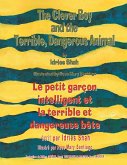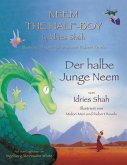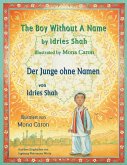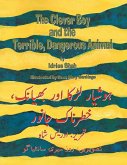(Bilingual English-Pashto edition) When a boy visits another village, he is amazed to find the people terrified of something that - just because they have not seen it before - they mistake for a terrible, dangerous animal. Using his own knowledge and by demonstration, the boy helps the villagers overcome their fears. This story is part of an oral tradition from the Middle East and Central Asia that is more than a thousand years old. In an entertaining way, it introduces children to an interesting aspect of human behavior and so enables them to recognize it in their daily lives. One of many tales from the body of Sufi literature collected by Idries Shah, this one is presented here as part of his series of books for young readers. This is the series' second book to be illustrated by Rose Mary Santiago, following the award-winning bestseller The Farmer's Wife.








